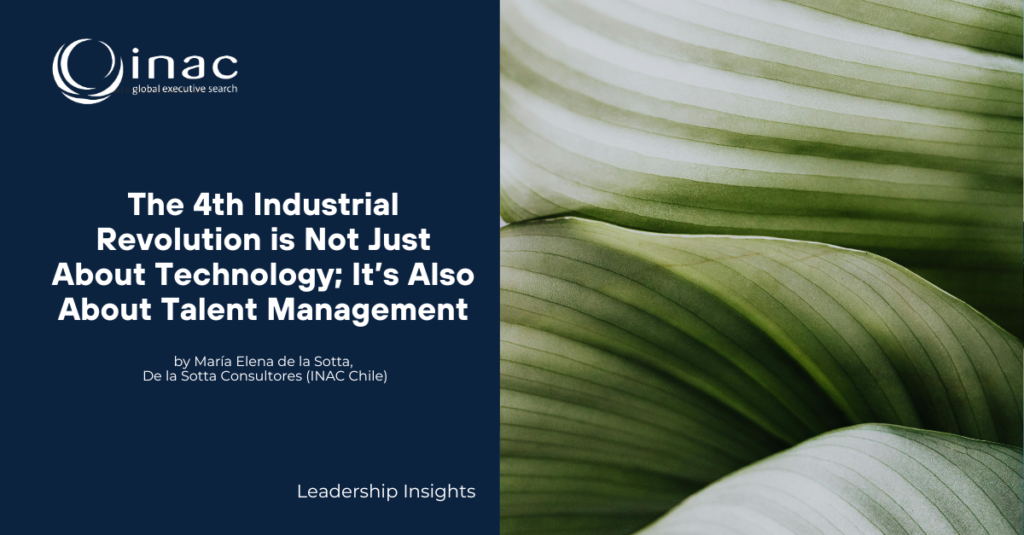
“The only constant in life is change.” There is no doubt that this wise quote by Heraclitus clearly reflects the spirit of the Fourth Industrial Revolution, where constant change is the only reality. During the recent talk by Monica Retamal at our INAC Latam Regional Meeting, titled “The Future of Work: 8 Trends Challenging Today’s Companies,” we explored not only the symbiosis emerging between the digital, physical, and biological realms, but also how this transformation goes beyond our daily activities to impact the identity of companies and how we manage talent. In this sense, adaptability becomes essential for any company looking to continue growing in a constantly evolving environment.
We find ourselves in an era where technology is not just a tool, but an integral part of organizational culture that requires a mindset shift prioritizing flexibility, creativity, and collaboration. Companies must ask themselves how they are adapting to this reality and what changes they are implementing to attract talent that not only meets technical requirements but also aligns with the company’s purpose and values.
However, that’s not all; the skills valued in the market are clearly evolving. Today, the ability to adapt, learn, and collaborate is fundamental. This revolution is demanding that companies invest in the development of internal talent, fostering a culture of continuous learning that enables their employees to acquire the necessary competencies to transform and evolve. Likewise, when incorporating external talent, companies should focus on finding profiles that not only bring technical skills but also embody a growth, open and adaptable mindset.
Another crucial aspect that this revolution brings to companies is the ethical dilemmas that arise with technological advancement, such as privacy, equity, and transparency. This compels companies to be more proactive in establishing policies that balance technological innovation while ensuring social responsibility and respecting fundamental values and the well-being of their employees.
On the other hand, this revolution transforms society; therefore, companies play a key role in building a more inclusive future, where opportunities are shared equitably and where diversity of talent is valued. This vision will be essential in facing the challenges of the future workplace.
In conclusion, if there is one ALERT from all of this, it is that – as part of the Fourt Industrial Revolution – companies must be more aware of their role in society and the world, starting with the question of how they can effectively lead change. Leveraging technology is one way, but not only to improve efficiency; rather, it is crucial for enriching our employees’ experiences and building a more human and inclusive future. Every decision and action must focus on talent. It is both a challenge and a tremendous opportunity for all companies, regardless of size, type, or sector.
______________________________________

María Elena de la Sotta, Partner De la Sotta Consultores (INAC México)
With over 16 years of experience in Executive Search, focused on recruiting top and middle management executives both nationally and internationally, María Elena is the Executive Director of DeLaSotta Consultores, a firm established in 2009 and renowned for its high-quality service and client focus. She is an expert in remote recruitment, developing strategies that connect top professionals regardless of their geographical location. She actively participates in talent recruitment programs for young professionals at prestigious institutions such as Harvard, MIT, Kellogg, and Michigan. Additionally, she is involved in “emerging talent” initiatives at leading universities in Argentina, Brazil, Chile, Ecuador, and Peru. As a certified Career Coach, she provides specialized career coaching and mentoring, supporting clients through career transitions with tailored programs that meet each client’s unique needs.